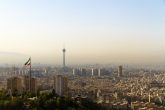February 27, 2017
President Trump’s Counterterrorism Paradox
President Trump kept two aspects of his foreign policy vision consistent throughout the campaign and after the November election. He promises to reduce U.S. intervention into foreign conflicts because “we’re all over the place fighting in areas that we shouldn't be fighting.” He also vows to subdue the Islamic State of Iraq and Syria (ISIS) and other terrorist groups that threaten the United States. Preventing terrorists from operating in unstable environments and directing attacks elsewhere is a task that, ostensibly, may require U.S. military action. Thus, the president finds himself in a paradoxical situation: How can one honor pledges to draw down military interventions while simultaneously commit to effectively defeating a terrorist group with an extensive global reach? Special operations forces (SOF) units and drones will surely remain key in responding to this threat environment in a way which is congruent with the President’s policies.
Long-term, however, this approach won’t work. Both SOF units and the drone program face serious operational and reputational limits after a decade of overuse. Further depleting these resources will damage U.S. counterterrorism capabilities.
President Obama entered office in 2009 with promises similar to President Trump’s in 2017 – eliminating terrorist threats while limiting U.S. involvement in large, protracted conflicts. This so-called “right-sizing” of U.S. military presence in the Middle East increased reliance on SOF troops and drones as counterterrorism tactics. However, ISIS’s 2014 rout of U.S.-trained Iraqi Security Forces as part of its attempt to reestablish the “caliphate” showcased the weakness of this minimalist counterterrorism strategy.
Read the full article at Defense News.
More from CNAS
-
“The Ayatollah Has No Clothes” – with Rich Goldberg and Richard Fontaine
Richard Fontaine is CEO of the Center for American Security, joins Call Me Back to assess the threat FROM Iran and the threat TO Iran. Listen to the full episode on Call Me ...
By Richard Fontaine
-
What Does Yahya Sinwar’s Death Mean for the War in Gaza?
Jonathan Lord, Senior Fellow and Director of the Middle East Security program, joins RN Drive to discuss the death of Sinwar who has long been viewed as one of the militant gr...
By Jonathan Lord
-
Russia in the Middle East with Jonathan Lord and Hanna Notte
One year after the October 7 attacks by Hamas, the crisis in the Middle East has grown more and more complex. With the region teetering on the brink of broader conflict, the B...
By Jonathan Lord, Hanna Notte, Andrea Kendall-Taylor & Jim Townsend
-
A Year of Anguish for the Hostages in Gaza—and Their Families
October 7 gave rise to unexpected bipartisan coalitions of D.C. experts and legislators who lent their knowledge to help U.S. hostage families and victims of the conflict navi...
By Daniel Silverberg




